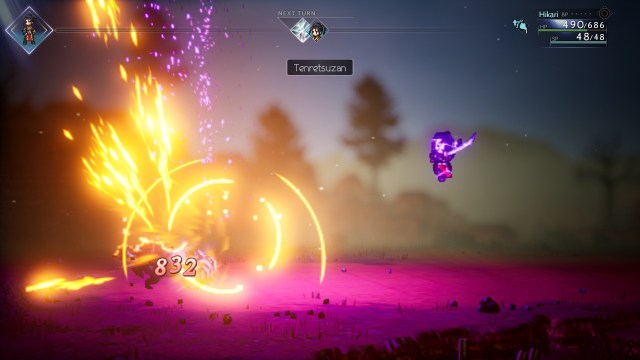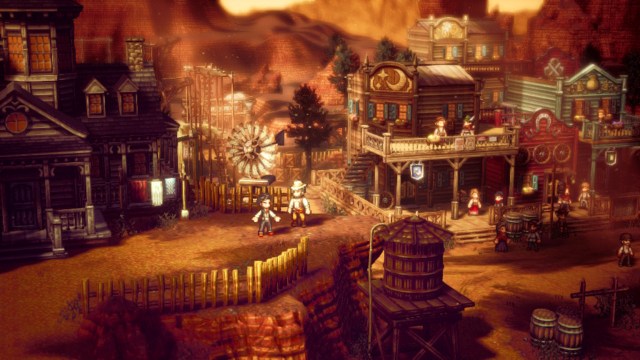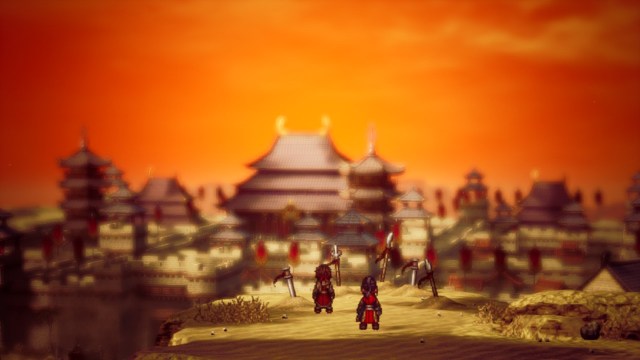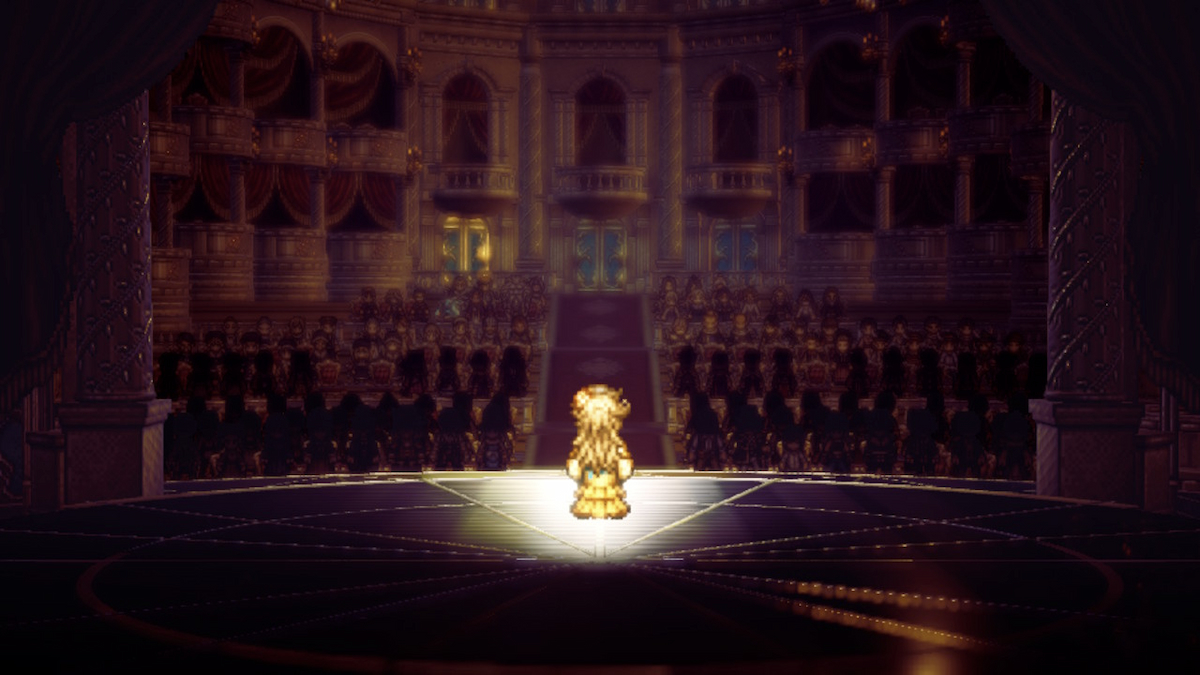The character names still spell Octopath
When I started the Octopath Traveler II demo from this week’s Nintendo Direct, I thought “well, this is certainly more Octopath Traveler.” I technically wasn’t wrong, but I was massively underestimating what I was getting into.
On the surface, Octopath Traveler II feels the same. One of eight characters can be your protagonist, the menus are identical, and the core features from before remain. This initially filled with me trepidation. Octopath Traveler is a game I like well enough. After all, I even got invested in the mobile spinoff last year. But it was a game that I took in bite-sized doses. I loved the artstyle and the battle system, but it didn’t have that special something that hooked me like the golden age RPGs it was trying to invoke. I was immediately afraid that Octopath Traveler II would be a safe sequel, delivering more of the first game while not addressing its fundamental issues.
Fortunately, after playing all three hours that the demo allows, it’s looking like Octopath Traveler II is as much of an improvement as Mega Man 2 was for its predecessor. It doesn’t shakeup the original’s formula, but there’s enough polish to prove the core of Octopath Traveler is well worth returning to.

The same, but better
To start, let’s talk about the characters’ unique path actions.
Octopath Traveler II doesn’t technically add new path actions to the game, but the mechanics added to them are transformative. For example, I selected the warrior Hikari as my protagonist, mostly because I am as vanilla as a Frappuccino. His Challenge command lets you fight NPCs just as Octopath Traveler‘s Olberic did, but now you can learn skills from defeated foes. It’s a small change with huge implications, since NPCs with useful skills were as exciting to find as treasure chests.
Additionally, every character’s path action changes depending on whether it’s day or night. Swapping times happens instantly with a press of the R2 button, alleviating any potential tedium of finding inns to pass the time. Small touches like these really show the developers want to cut away the minutiae and keep you questing.
Combat also feels fluid compared to the original. The obvious quality-of-life boon is the option to speed up combat animations, dramatically helping the pace of random battles. I was typically out of combat in about 20 seconds, though this admittedly isn’t that impressive for the early game. The big new feature is Latent Power, which functions similarly to limit breaks from Final Fantasy 7. As characters take damage or break enemy shields, a gauge will fill that grants unique properties when activated. For Hikari, this involves powerful attacks that cost no MP. For the merchant Partitio, Latent Power fills his BP gauge instantly. It’s a great system that helps characters feel unique, and it’s another tool to dispatch common foes even faster.
Individually, these additions don’t make Octopath Traveler II a robust sequel. Yet these elements put together dramatically improves the game’s pace. That said, if story was your sticking point from the first game, it’s not clear cut if Octopath Traveler II will provide the change you’re looking for.

Here comes another eight stories
As futile as it sounds to discuss the opening hours of a narrative, first impressions go a long way. While the promised Crossed Path events will allegedly connect the character plots, these didn’t show up during my playtime.
The early game still moves from one disconnected story to the next as you recruit allies. If that structure rubbed you the wrong way last time, it likely will here too. That said, from what I’ve seen, Octopath Traveler II takes deliberate steps to work within this format better. Hikari’s introduction thrusts you into the action with wars, betrayals, and climactic showdowns before the chapter’s end. Meanwhile, though Partitio’s prologue was slower paced, it followed a self-contained arc that mostly resolved by the conclusion. There’s a tangible effort to help segue the individual stories better so you don’t feel disoriented as plot threads abruptly drop.
The writing is stronger compared to the original’s early game. Both narratives I experienced were predictable, but there’s better direction this time around. Characters emote with fluid animations to tell tales visually without relying on dialogue boxes. Similarly, the game leans into its beautiful HD-2D art to provide many gorgeous vistas that enhance key moments. The first game was already breathtaking, so I don’t say lightly that Octopath Traveler II is a remarkable graphical improvement.
I did enjoy the diversity of backstories so far, but I’ll reserve further judgment until I see the full game. Honestly, I can’t imagine I’ll be calling Octopath Traveler II’s storytelling great. But for now, I’m learning towards calling it good.

Should you try Octopath Traveler II?
Ultimately, the Octopath Traveler series is intended for RPG fans who grew up in the SNES era. I don’t think Octopath Traveler II will turn any skeptics into believers, but so far, it’s a polished adventure that fans of the genre will love.
Everything that was good about Octopath Traveler shines brighter. The strategic combat flows smoother, the art is incredible, and Yasunori Nishiki is in peak form with his most diverse soundtrack yet. Each small flourish goes a long way, even down to the extra sprite animations when enemies perform signature attacks. It does such a good job evoking how SNES RPGs felt as a kid that I would go so far as to call it epic. I didn’t notice how fast the three hours limit went by, and it’s a shame my save file is now locked midstream in the dancer Agnea’s prologue.
It’s a strong start for sure, but the real challenge will be whether Octopath Traveler II can sustain this momentum into its midgame. Personally, I’m eager to take that journey to find out. If you were someone who wanted to like the first game but just couldn’t quite get into it, I’d say give this demo a shot. If the full game can live up to this standard, Octopath Traveler II could be Team Asano’s best game yet.








